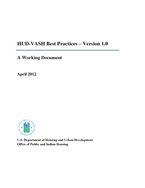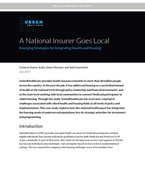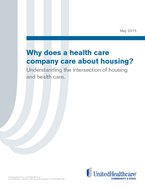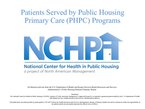0
Report
Community:
Jun 29, 2022
Looking largely at the 2020-2021 school year, the report is chock-full of information about how schools apply research-based strategies in a variety of different contexts – from very different school systems across multiple states – to make research translate into positive experiences and outcomes for students and their teachers in three critical areas:
• Instructional work, where math or English-language-arts teams, including instructional coaches, special-education teachers, and English learner/multilingual teachers, work to improve the quality of instruction within classrooms.
• Early Warning and Response strategies, where grade-level or cross-functional teams work to create more supportive school environments, where young people are connected to adults, each other, and the school community.
• Well-Matched Postsecondary initiatives, where school-based teams of counselors, service providers, district and school leaders, teachers, and other staff band together to implement evidence-based strategies and processes that support postsecondary application, enrollment, and persistence.
At its heart, improvement is about learning. Each of these networks study their own work, and consistently and strategically make adaptations to increase their effectiveness as the organizational hub supporting schools. And they demonstrate how lessons need not fade away, but when codified, systematized, and shared, they can deepen our collective capacity to accelerate the field’s learning and growth.
Authored by:
Topics: Advocacy, Attendance, Child welfare, CLPHA, Community development, Education, Grade-level proficiency, Housing, Literacy, Low-income, Partnerships, Place-based, Supportive housing, Sustainability, Youth
 Shared by Karina George
Shared by Karina George
Karina George posted a
on Jun 29, 2022
Looking largely at the 2020-2021 school year, the report is chock-full of information about how schools apply research-based strategies in a variety of different contexts – from very different school systems across multiple states – to make research translate into positive experiences and outcomes f
0
Report
Community: Postsecondary
May 2, 2019
Innovative public housing authorities (PHAs) are collaborating with college access partners and community colleges to increase postsecondary educational achievement for low-income residents and college students experiencing homelessness. This report elevates 11 shared learnings from a recent convening of these five pioneering PHAs and their postsecondary collaborators, and offers a series of recommendations to policy makers, PHAs, and philanthropic organizations seeking to develop emerging cross-sector collaborations between housing and education organizations. The report also includes an overview of the federal policies that support and limit postsecondary achievement for students served by PHAs, and profiles of the five partnerships: CHA and partners City Colleges of Chicago and One Million Degrees; CMHA and partner Columbus State Community College; HACLA and partner Southern California College Access Network (SoCal CAN); LMHA and partner Family Scholar House; and THA and partner Tacoma Community College.
Authored by: Abra Lyons-Warren for CLPHA
Topics: CLPHA, Education, Housing, Legislation & Policy, Low-income, Partnerships, Post-secondary, Stability
 Shared by Abra Lyons-Warren
Shared by Abra Lyons-Warren
Abra Lyons-Warren posted a
on Oct 6, 2020
Abra Lyons-Warren for CLPHA
Innovative public housing authorities (PHAs) are collaborating with college access partners and community colleges to increase postsecondary educational achievement for low-income residents and college students experiencing homelessness.
0
Report
Community:
Nov 7, 2019
How Housing Programs Can Support the Educational Needs of Children Living in Publicly Supported Homes
Authored by: Public and Affordable Housing Research Corporation
Topics: Attendance, Broadband, Child welfare, Early childhood, Health, Housing, Literacy, Low-income, Out-of-school time, Partnerships, Place-based, Research, School-readiness
 Shared by Kelly McElwain
Shared by Kelly McElwain
Kelly McElwain posted a
on Nov 7, 2019
Public and Affordable Housing Research Corporation
How Housing Programs Can Support the Educational Needs of Children Living in Publicly Supported Homes
0
Report
Community:
Jun 6, 2019
Trends in Housing Assistance and Who it Serves
Authored by: PAHRC
Topics: Community development, Disabilities, Education, Funding, Health, Homelessness, Housing, Legislation & Policy, Low-income, Partnerships, Research, Seniors, Workforce development, Youth
 Shared by Keely Stater
Shared by Keely Stater
Keely Stater posted a
on Sep 10, 2019
Trends in Housing Assistance and Who it Serves
0
Interactive
Community:
The Legal Bibliography is collection of 100+ papers, toolkits and other materials focused on privacy, consent and policy documentation. Co-developed by the Network for Public Health Law and Data Across Sectors for Health (DASH), the Bibliography is a growing resource for lawyers and community data practitioners, intended to support local collaboratives in their efforts to share data across sectors.
Authored by: Data Across Sectors for Health (DASH) and Network for Public Health Law (NPHL)
Topics: Criminal justice, Data sharing, Education, Health, Homelessness, Housing, Mental health, Partnerships, Safety
 Shared by Housing Is
Shared by Housing Is
Housing Is posted a
on Apr 8, 2019
Data Across Sectors for Health (DASH) and Network for Public Health Law (NPHL)
The Legal Bibliography is collection of 100+ papers, toolkits and other materials focused on privacy, consent and policy documentation.
0
Report
Community:
Apr 8, 2019
While the program has changed very little since its inception, the need for the program has increased. In 1975, the number of program grantees stood at 594. Today, the number of grantees stands at 1,268 as more communities qualify to receive direct program allocations. Based on a CDBG Needs Survey conducted by the CDBG Coalition (and discussed later in this report), CDBG grantees have delayed and canceled projects and reduced or permanently eliminated programs because of a lack of CDBG funds. CDBG is an important investment tool for communities and neighborhoods, but program funding must increase to meet local need to ensure CDBG grantee communities are healthy, vibrant and thriving.
Authored by:
Topics: Community development, Funding, Health, Homelessness, Housing, Legislation & Policy, Low-income, Partnerships, Research, Safety, Seniors
 Shared by Housing Is
Shared by Housing Is
Housing Is posted a
on Apr 8, 2019
A report of the CDBG Coalition
While the program has changed very little since its inception, the need for the program has increased. In 1975, the number of program grantees stood at 594. Today, the number of grantees stands at 1,268 as more communities qualify to receive direct program allocations.
0
Report
Community:
These Principles are derived from a thematic review of mission statements and principles from 35 organizations representing the community development, health, academic, government, finance, and philanthropic sectors. More than 200 respondents provided over 1,800 comments which helped refine the Principles below.
Authored by: Build Healthy Places Network
Topics: Community development, Health, Housing, Partnerships, Racial inequalities
 Shared by Housing Is
Shared by Housing Is
Housing Is posted a
on Mar 11, 2019
Build Healthy Places Network
These Principles are derived from a thematic review of mission statements and principles from 35 organizations representing the community development, health, academic, government, finance, and philanthropic sectors.
0
Report
Community:
Sep 4, 2018
This series of papers provides an overview and framework for reaching out to stakeholders or potential partners from other sectors that may share your interest in collaborating and sharing data to improve community health. Knowing your audience will help your collaboration craft a successful and productive outreach strategy, strengthen your partnerships, and ensure ongoing sustainability by clearly defining and articulating the value of sharing data across sectors.
Authored by: Data Across Sectors for Health (DASH)
Topics: Criminal justice, Health, Homelessness, Housing, Medicaid / Medicare, Partnerships
 Shared by Mica O'Brien
Shared by Mica O'Brien
Mica O'Brien posted a
on Feb 20, 2019
Data Across Sectors for Health (DASH)
This series of papers provides an overview and framework for reaching out to stakeholders or potential partners from other sectors that may share your interest in collaborating and sharing data to improve community health.
0
Report
Community:
Feb 19, 2019
Integrating health care data with data from other sectors helps address the holistic needs of individual patients while informing the development of population-level programs and policies that can improve outcomes, both in health care and other sectors. This paper provides guidance for those in non-health care sectors (e.g. housing, social services, community-based organizations) on effectively engaging and advancing conversations with health care stakeholders about collaborating to share data, focusing on the specific stakeholder of hospitals/health systems.
Authored by: Data Across Sectors for Health (DASH)
Topics: Health, Housing, Low-income, Medicaid / Medicare, Partnerships
 Shared by Mica O'Brien
Shared by Mica O'Brien
Mica O'Brien posted a
on Feb 20, 2019
Data Across Sectors for Health (DASH)
Integrating health care data with data from other sectors helps address the holistic needs of individual patients while informing the development of population-level programs and policies that can improve outcomes, both in health care and other sectors.
0
Interactive
Community:
Through our conversations with King County, Seattle, Tacoma, and Vancouver Housing Authorities, as well as Home Forward, Portland’s housing authority, and partners from school districts, out-of-school time programs, and community-based organizations, we learned why they endeavored to better intersect housing and education, elements of a successful partnership, lessons learned, their challenges, and how the work can be replicated. We hope this will be a resource for other individuals and communities as they begin and strengthen partnerships of their own in order to improve life outcomes for low-income individuals and families.
Authored by: CLPHA
Topics: CLPHA, Education, Housing, Out-of-school time, Partnerships, Place-based
 Shared by Mica O'Brien
Shared by Mica O'Brien
Mica O'Brien posted a
on Dec 20, 2018
Through our conversations with King County, Seattle, Tacoma, and Vancouver Housing Authorities, as well as Home Forward, Portland’s housing authority, and partners from school districts, out-of-school time programs, and community-based organizations, we learned why they endeavored to better intersec
0
Report
Community:
May 1, 2018
Housing and health systems need to work together. Public housing authorities (PHAs) are significant providers of housing to those in need, offering the health sector scale and expertise. Little was known about how PHAs worked with the health sector writ large. With a national survey, we found that PHAs across the country are engaged in a wide range of partnerships with different health organizations that address various target populations and health priorities. Barriers to housing-health collaboration, such as funding and staffing capacity, can be overcome with cross-system partnerships that seek to address these needs.
Authored by: CLPHA and PAHRC
Topics: Child welfare, Funding, Health, Housing, Low-income, Medicaid / Medicare, Partnerships, Preventative care, Research, Seniors, Smoke-free
 Shared by Housing Is
Shared by Housing Is
Housing Is posted a
on Dec 19, 2018
Housing and health systems need to work together. Public housing authorities (PHAs) are significant providers of housing to those in need, offering the health sector scale and expertise. Little was known about how PHAs worked with the health sector writ large.
0
Interactive
Community:
The 2018 Purpose Built Conference in Orlando, Florida from October 24 – 26 was a tremendous opportunity for thoughtful engagement and energetic conversations with Network Members and attendees from all across the country. Our panel of guest speakers represented a wide range of industries and brought unique perspectives and insights.
Authored by: Purpose Built Communities
Topics: Community development, Education, Health, Housing, Low-income, Mobility, Partnerships, Place-based
 Shared by Mica O'Brien
Shared by Mica O'Brien
Mica O'Brien posted a
on Dec 5, 2018
Purpose Built Communities
The 2018 Purpose Built Conference in Orlando, Florida from October 24 – 26 was a tremendous opportunity for thoughtful engagement and energetic conversations with Network Members and attendees from all across the country.
0
Interactive
Community:
Nov 29, 2018
With political divisions on the rise and global cooperation imperiled, city officials worldwide are stepping up to lead, solving local problems while sharing solutions and innovations across borders. Making cities such as New York, Pittsburgh, and Los Angeles inclusive, safe, and sustainable is vital to the future of the United States—and the globe. Driven by the need to act locally while thinking globally, a growing number of metro areas are adapting the Sustainable Development Goals (SDGs) as a blueprint for progress.
Authored by: The Brookings Institution
Topics: Community development, Housing, Partnerships, Place-based, Sustainability
 Shared by Mica O'Brien
Shared by Mica O'Brien
Mica O'Brien posted a
on Dec 3, 2018
The Brookings Institution
With political divisions on the rise and global cooperation imperiled, city officials worldwide are stepping up to lead, solving local problems while sharing solutions and innovations across borders.
0
Interactive
Community:
Nov 14, 2018
After decades of sprawl and suburban dominance, U.S. cities are experiencing rebounding populations, growing employment, and new public and private sector investments in places that are walkable, transit-oriented, and support diverse people and amenities. But we know that the benefits of these trends are not equally distributed, presenting an urgent opportunity for local and regional leaders to advance place-led development that produces better economic outcomes for more people in more places.
To help deliver on that imperative, the Metropolitan Policy Program at Brookings launched the Anne T. and Robert M. Bass Center for Transformative Placemaking (“Bass Center”) with an event on Wednesday, November 14. In collaboration with Project for Public Spaces (PPS) and the National Main Street Center (NMSC), the Bass Center will inspire public, private, and civic sector leaders to make transformative place investments that generate widespread social and economic benefits. Brookings President John Allen, Bass Center Director and Senior Fellow Jennifer Vey, special guest speaker Carol Coletta, and a distinguished panel of experts discussed how market and demographic trends are driving new demands for placemaking that benefit more people and places.
Authored by: The Brookings Institution
Topics: Community development, Housing, Partnerships, Place-based, Safety, Stability
 Shared by Mica O'Brien
Shared by Mica O'Brien
Mica O'Brien posted a
on Nov 19, 2018
The Brookings Institution
After decades of sprawl and suburban dominance, U.S. cities are experiencing rebounding populations, growing employment, and new public and private sector investments in places that are walkable, transit-oriented, and support diverse people and amenities.
0
Report
Community:
Nov 16, 2018
Housing and school segregation function as mutually-sustaining phenomena that limit perceived housing and school choices, constrain social networks, and curb employment and educational potential. Despite the link between housing and school segregation, however, many initiatives combating segregation tend to focus on one or the other instead of recognizing their inherent connectedness.
Authored by: Phillip Tegleler and Micah Herskind for the Poverty and Race Research Action Council
Topics: Data sharing, Dual-generation, Education, Housing, Legislation & Policy, Low-income, Mobility, Partnerships, Racial inequalities, Research
 Shared by Mica O'Brien
Shared by Mica O'Brien
Mica O'Brien posted a
on Nov 16, 2018
Phillip Tegleler and Micah Herskind for the Poverty and Race Research Action Council
Housing and school segregation function as mutually-sustaining phenomena that limit perceived housing and school choices, constrain social networks, and curb employment and educational potential.
0
Policy Brief
Community:
It’s no secret that survivors of domestic and sexual violence make up a large percentage of the families and individuals who seek help from the homeless/housing services system. No one expects homeless/housing programs to become an extension of the victim services system. But the intersection between homelessness and domestic and sexual violence requires both systems to do their work with that reality in mind.
Authored by: National Alliance for Safe Housing
Topics: Child welfare, Domestic violence, Homelessness, Housing, Legislation & Policy, Partnerships, Safety
 Shared by Mica O'Brien
Shared by Mica O'Brien
Mica O'Brien posted a
on Nov 1, 2018
National Alliance for Safe Housing
It’s no secret that survivors of domestic and sexual violence make up a large percentage of the families and individuals who seek help from the homeless/housing services system. No one expects homeless/housing programs to become an extension of the victim services system.
0
Report
Community:
Oct 24, 2018
CLPHA’s Housing Is Initiative is engaged in a number of cross-sector activities focused on developing partnerships, facilitating a community of practice, resource development, promoting best practices, online collaboration, policy and advocacy, and training and education. Read about recent activities in this Fall Update.
Authored by:
Topics: Child welfare, CLPHA, Community development, Cost effectiveness, Data sharing, Early childhood, Education, Family engagement, Funding, Health, Homelessness, Housing, Low-income, Medicaid / Medicare, Mental health, Partnerships, Place-based, Post-secondary, Research, Stability, Substance abuse, Workforce development, Youth
 Shared by Mica O'Brien
Shared by Mica O'Brien
Mica O'Brien posted a
on Oct 24, 2018
CLPHA’s Housing Is Initiative is engaged in a number of cross-sector activities focused on developing partnerships, facilitating a community of practice, resource development, promoting best practices, online collaboration, policy and advocacy, and training and education.
0
Interactive
Community:
The NYU Furman Center and Abt Associates have launched LocalHousingSolutions.org, an online, interactive resource to help communities create and implement comprehensive local housing strategies that promote housing affordability. CLPHA was involved with the design of the site as one of forty housing industry stakeholders selected to participate in the National Community of Practice on Local Housing Policy.
Local Housing Solutions offers a new framework for helping cities address affordability challenges as part of a comprehensive and balanced housing strategy. These challenges are complex and interrelated. The goal of the site is to serve as a single-source for local leaders to understand the breadth of available options and identify those that are most appropriate in their communities.
Authored by: Abt Associates and NYU Furman Center
Topics: CLPHA, Housing, Low-income, Partnerships, Research
 Shared by Mica O'Brien
Shared by Mica O'Brien
Mica O'Brien posted a
on Oct 10, 2018
Abt Associates and NYU Furman Center
The NYU Furman Center and Abt Associates have launched LocalHousingSolutions.org, an online, interactive resource to help communities create and implement comprehensive local housing strategies that promote housing affordability.
0
Interactive
Community:
HUD’s Office of Policy Development and Research (PD&R) is pleased to announce the 2019 Innovation in Affordable Housing (IAH) Student Design and Planning Competition. The competition encourages multidisciplinary graduate student teams to submit innovative solutions for a real-world affordable housing project that incorporate design, planning, finance, and larger community elements.
Authored by: PD&R Edge Online Magazine
Topics: Funding, Housing, Low-income, Partnerships, Research
 Shared by Mica O'Brien
Shared by Mica O'Brien
Mica O'Brien posted a
on Oct 10, 2018
PD&R Edge Online Magazine
HUD’s Office of Policy Development and Research (PD&R) is pleased to announce the 2019 Innovation in Affordable Housing (IAH) Student Design and Planning Competition.
0
Report
Community:
Jul 26, 2018
Neighborhoods where insecure housing overlaps with higher rates of emergency department use may be promising areas for interventions under Medicaid value-based payment
Authored by: United Hospital Fund
Topics: East Coast, Health, Housing, Low-income, Medicaid / Medicare, Partnerships, Stability
 Shared by Mica O'Brien
Shared by Mica O'Brien
Mica O'Brien posted a
on Oct 10, 2018
Neighborhoods where insecure housing overlaps with higher rates of emergency department use may be promising areas for interventions under Medicaid value-based payment
0
Report
Community:
Aug 9, 2018
In the fall of 2011, a request for the submission of best practices was sent to public housing agencies (PHAs) and VA Medical Centers (VAMCs) that administer the program via the HUDVASH listserv. Over 50 best practices accounts were submitted in response to the request. The practices below have been compiled based on these accounts, which were cross-referenced with monthly data on agency performance and further developed through phone interviews.
Authored by:
Topics: Health, Housing, Partnerships
 Shared by Housing Is
Shared by Housing Is
Housing Is posted a
on Aug 9, 2018
In the fall of 2011, a request for the submission of best practices was sent to public housing agencies (PHAs) and VA Medical Centers (VAMCs) that administer the program via the HUDVASH listserv. Over 50 best practices accounts were submitted in response to the request.
0
Report
Community:
Aug 9, 2018
UnitedHealthcare provides health insurance benefits to more than 40 million people across the country. In the past decade, it has addressed housing as a social determinant of health at the national level through policy leadership and financial investments, and at the state level working with local communities to connect Medicaid participants to stable housing. Through this work, UnitedHealthcare has overcome a myriad of challenges associated with siloed health and housing fields at all levels of policy and implementation. This case study explores how this national health payer has integrated the housing needs of underserved populations into its strategic priorities for investment and programming.
Authored by:
Topics: Affordable Care Act, Data sharing, Funding, Health, Homelessness, Housing, Low-income, Medicaid / Medicare, Partnerships
 Shared by Housing Is
Shared by Housing Is
Housing Is posted a
on Aug 9, 2018
UnitedHealthcare provides health insurance benefits to more than 40 million people across the country.
0
Policy Brief
Community:
Aug 9, 2018
In a post health care reform era, Medicaid programs need to build system capacity to effectively manage increasingly complex Medicaid populations while simultaneously seeking innovative solutions to reduce costs and improve access. As states are increasingly becoming more reliant upon managed care for complex populations – such as individuals in need of long-term services and supports, those with intellectual or developmental disabilities, individuals with severe and persistent mental illness, as well as children with special health care needs – the needs of these populations range far beyond traditional health care.
Authored by:
Topics: Funding, Health, Housing, Low-income, Medicaid / Medicare, Partnerships
 Shared by Housing Is
Shared by Housing Is
Housing Is posted a
on Aug 9, 2018
In a post health care reform era, Medicaid programs need to build system capacity to effectively manage increasingly complex Medicaid populations while simultaneously seeking innovative solutions to reduce costs and improve access.
0
Report
Community:
Aug 9, 2018
Information on PHPC Programs
Authored by:
Topics: Health, Housing, Mental health, Partnerships
 Shared by Housing Is
Shared by Housing Is
Housing Is posted a
on Aug 9, 2018
Information on PHPC Programs
0
Report
Community:
Aug 9, 2018
The Colorado Coalition for the Homeless created the Denver Housing First Collaborative (DHFC) in 2003 with funding provided by a collaboration of federal agencies. The DHFC involved CCH as the lead agency, Denver Department of Human Services (DDHS), Denver Health (DHHA), Arapahoe House, the Mental Health Center of Denver (MHCD) and the Denver VA Medical Center. The DHFC is designed to provide comprehensive housing and supportive services to chronically homeless individuals with disabilities. Initial federal funding created the capacity to house and serve 100 chronically homeless individuals. The program uses a housing first strategy combined with assertive community treatment (ACT) services, providing integrated health, mental health, substance treatment and support services.
Authored by:
Topics: Cost effectiveness, Funding, Health, Homelessness, Housing, Pacific Northwest, Partnerships, Research, Stability, Supportive housing
 Shared by Housing Is
Shared by Housing Is
Housing Is posted a
on Aug 9, 2018
The Colorado Coalition for the Homeless created the Denver Housing First Collaborative (DHFC) in 2003 with funding provided by a collaboration of federal agencies.
 Shared by Karina George
on Jun 29, 2022
Shared by Karina George
on Jun 29, 2022
 Shared by Abra Lyons-Warren
on Oct 6, 2020
Shared by Abra Lyons-Warren
on Oct 6, 2020
 Shared by Kelly McElwain
on Nov 7, 2019
Shared by Kelly McElwain
on Nov 7, 2019

 Shared by Keely Stater
on Sep 10, 2019
Shared by Keely Stater
on Sep 10, 2019

 Shared by Housing Is
on Apr 8, 2019
Shared by Housing Is
on Apr 8, 2019
 Shared by Housing Is
on Apr 8, 2019
Shared by Housing Is
on Apr 8, 2019
 Shared by Housing Is
on Mar 11, 2019
Shared by Housing Is
on Mar 11, 2019
 Shared by Housing Is
on Dec 19, 2018
Shared by Housing Is
on Dec 19, 2018
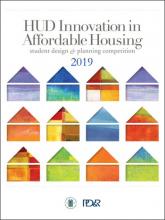
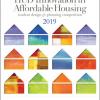
 Shared by Housing Is
on Aug 9, 2018
Shared by Housing Is
on Aug 9, 2018
 Shared by Housing Is
on Aug 9, 2018
Shared by Housing Is
on Aug 9, 2018
 Shared by Housing Is
on Aug 9, 2018
Shared by Housing Is
on Aug 9, 2018
 Shared by Housing Is
on Aug 9, 2018
Shared by Housing Is
on Aug 9, 2018
 Shared by Housing Is
on Aug 9, 2018
Shared by Housing Is
on Aug 9, 2018






